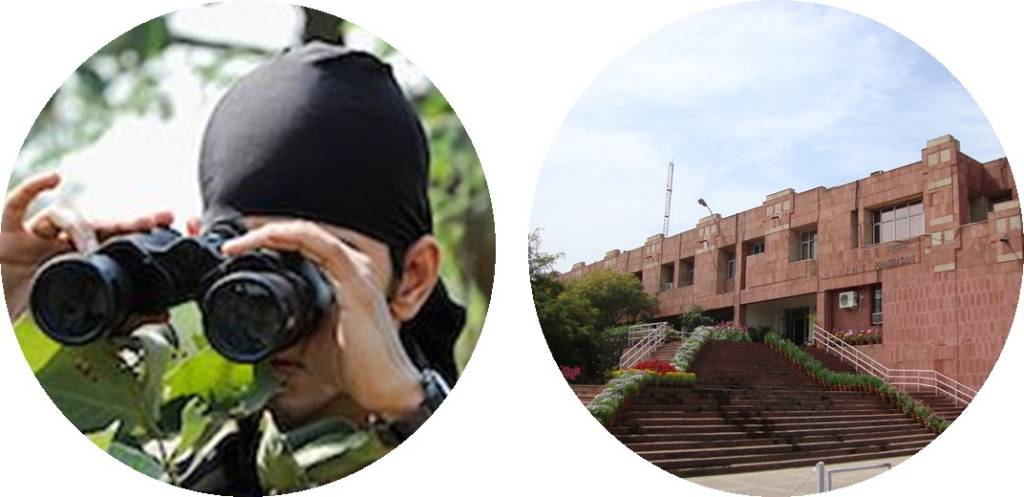JNU, the most controversial university in the country, with the image of being anti-national and troublesome is in news again.
In August this year, JNU administration gave the security contract of the university to the Army Welfare Placement Organisation (AWPO). The organization is independent of a direct link from any armed forces body of the government and operates independently. But, it employs only retired armed forces personnel.
The previous contract of JNU with G4S security expired almost three years ago. The University floated tenders but could not find a suitable replacement. “Later, we approached the defence services to find out if they had anything for us. We got eight to nine tenders from them, and the university picked the AWPO one as it fulfilled our criterion,” said JNU registrar Pramod Kumar.
The AWPO is more efficient as compared to the previous firm; it has employed 270 former soldiers on duty, compared to 500 security personnel employed by the previous organization. But the JNU Student body is not happy with the placement of armed forces personnel at JNU campus.
“The hiring happened in a very secretive manner… The administration knows that there is some kind of solidarity among workers, guards and the students, which is what the administration does not like,” said Aishe Ghosh, President of the JNU Students’ Union (JNUSU). “It thinks that a guard’s job is only to beat people up and restrict voices.”
Almost every central university in the country employs retired armed forces personnel for security purposes. The universities opened under “The Central Universities Act, 2009″ of Govt. of India, has mandated to employ retired armed forces personnel, as they are well trained to handle any problematic situation.
There have been many security problems in JNU since February 2016 when anti-India slogans were recited in the university. The widespread student activism, sloganeering, effigy burning, and rallies make the university vulnerable to security mishaps, and therefore a disciplined force is required to stop any undesirable situation.
The trade unions also voiced protest against replacement and said the placement of armed forces personnel could instill fear in the minds of students. “There is no study to prove that former service personnel have proven to be good security guards. We fear the university has got them so that they can instill more fear in the minds of students and restrict protests,” said Abhishek Singh, general secretary of All India Central Council of Trade Unions (AICCTU), who happens to be alumni of JNU. He also helped the private security guards to file a complaint against their dismissal in Delhi High Court.
The student union should not have an issue with the placement of retired armed forces personnel, as it would improve the security of the university. But the JNUSU has become habitual of opposing anything that is done by the university administration.
The radical anti-establishment stance comes in the way of rational thinking and the student union opposes many decisions just for the sake of opposition.
Opposing the decisions of the administration and that of Modi government is also a medium of cheap publicity for the student representative body.
JNU has been under National Media attention since 2016 when the anti-national slogans were chanted in the university. Since then, every event in the university is covered widely. The university also gets disproportional media attention because it is the last bastion of ‘left’. It is strategically located in National Capital, and Leftist parties have controlled JNUSU since time immemorial.
The left vs right fight became more intense after the Modi government came to power in 2014 with full majority. Before that, no right-wing party enjoyed a full majority in the Indian parliament. JNU, being a stronghold of left, waged an ideological war against Modi government. JNU student union’s stand on various sociopolitical issues is the polar opposite to that of Modi government. And ‘the contrast’ between both is what media is interested in as it gets them more eyeballs.
